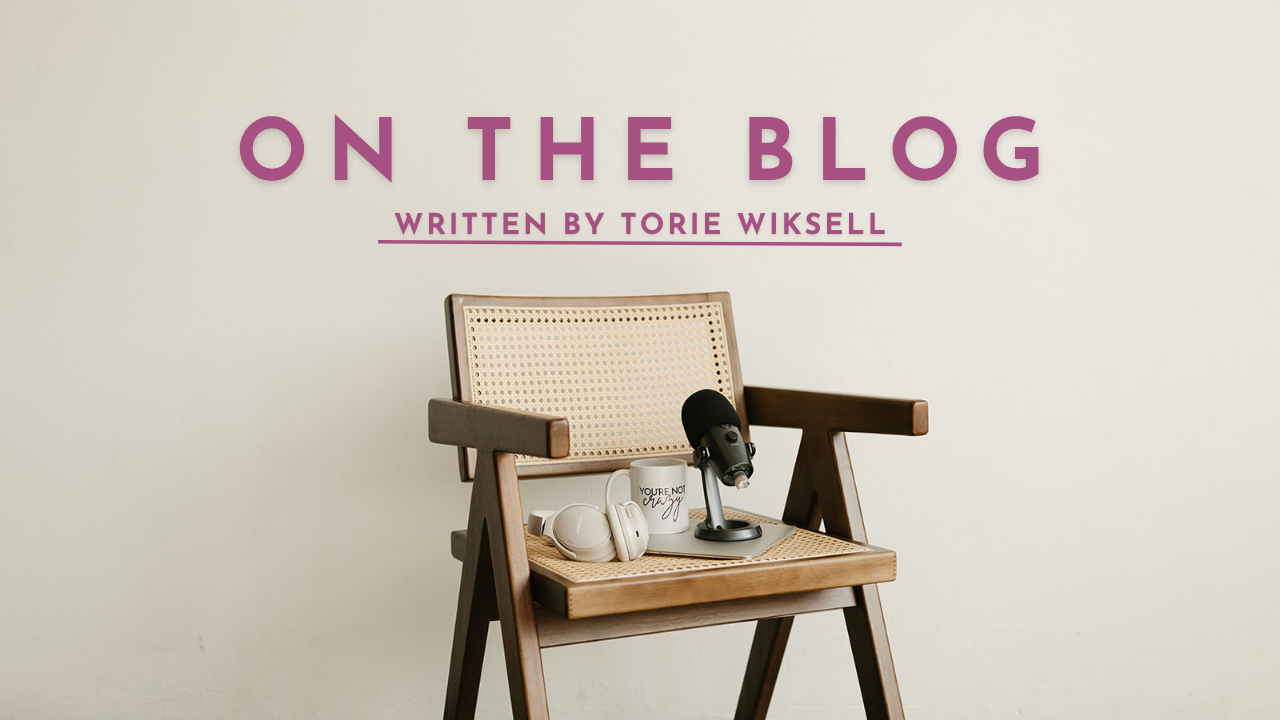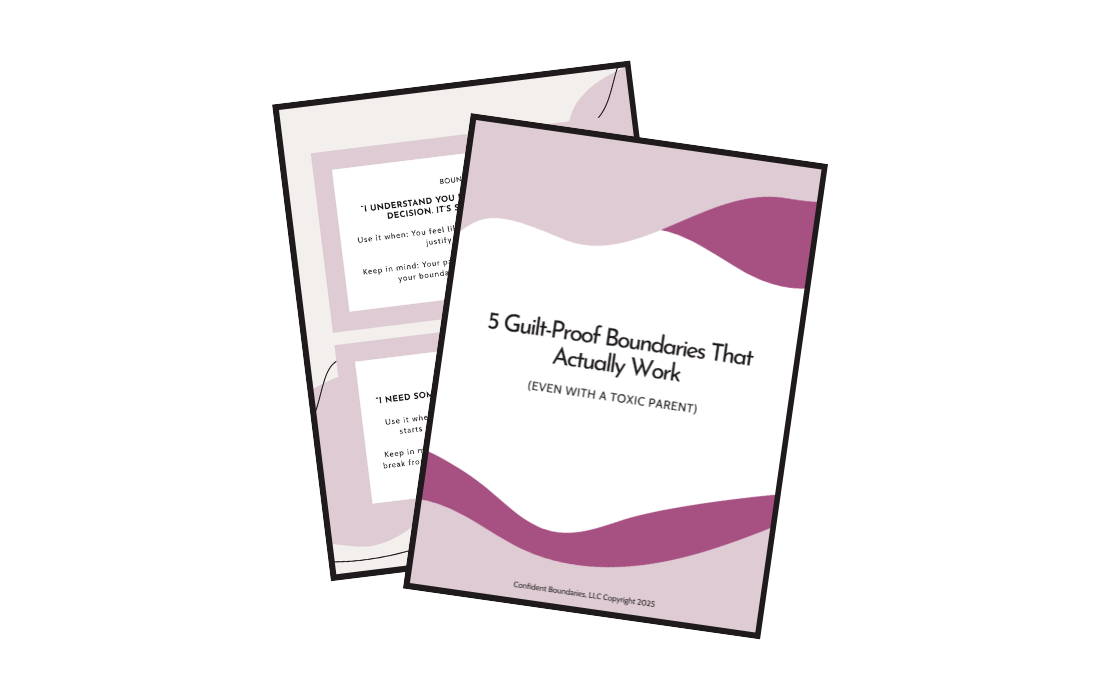
Reclaiming Your Emotional Well-Being After Growing Up with Toxic Parents
If you grew up with emotionally immature parents—especially ones with borderline or narcissistic traits—you’ve probably spent a lot of your adult life feeling confused, overwhelmed, or like something is wrong with you that you just can’t quite name.
You second-guess your feelings.
You overanalyze your decisions.
You wonder why relationships feel so hard.
You might even find yourself asking, Am I the problem?
You’re not.
You’re just finally starting to heal from a dysfunctional family system that taught you your emotions couldn’t be trusted—and that your needs were too much.
The Real Impact of Growing Up with Toxic Parents
When we talk about dysfunctional families, people often picture big, dramatic moments—screaming matches, slammed doors, chaotic holidays.
But sometimes, the damage is quieter.
It’s the everyday erosion of your emotional safety.
It’s the way your sadness was dismissed.
The way you were blamed for things that weren’t yours.
The way love came with conditions.
That’s what growing up with emotionally immature parents does—it disconnects you from your emotional compass. And now, as an adult, you’re trying to find your way back to yourself.
So let me say this clearly:
You’re not broken. You’re not dramatic. And you’re definitely not too sensitive.
You’re someone who learned to survive in an environment that made you question your reality.
And now?
You get to do more than survive. You get to thrive.
Step 1: Learn to Identify and Validate Your Emotions
If emotions weren’t safe in your home growing up, it makes sense that they feel foreign—or even scary—now.
Maybe you were told:
-
“You’re too sensitive.”
-
“Stop being so dramatic.”
-
“You always make everything about you.”
So of course you learned to shut it all down.
But here’s the truth: your feelings were always valid. You just didn’t grow up in a home that knew how to reflect that back to you.
Start small.
Use an emotion chart (just google it).
Name what you’re feeling without judging it.
You don’t have to justify it. You don’t have to explain it.
Just notice it.
This is how you start building emotional safety within yourself—one name, one breath, one feeling at a time.
Step 2: Practice Self-Compassion (Even When It Feels Weird)
Here’s what no one tells you about growing up with toxic parents:
You don’t just leave the dysfunction—you carry it.
It becomes your inner voice. Your inner critic. The lens you see yourself through.
And that voice often says, “You only deserve kindness if you’re perfect.”
That’s a lie.
You deserve compassion because you’re human.
Because you’ve been through a lot.
Because you’re doing the work.
Because you exist.
Self-compassion isn’t self-indulgent. It’s corrective.
It’s how you start treating yourself the way you always deserved to be treated.
Step 3: Learn to Sit With Your Emotions (Without Getting Swallowed by Them)
If you grew up in a household where feelings exploded or were completely ignored, it’s no wonder emotions feel overwhelming now.
Maybe you try to avoid them.
Maybe you feel numb.
Maybe you spiral and don’t know how to come back.
That doesn’t mean you’re broken. It means no one taught you how to regulate.
But regulation is a skill. And you can learn it.
Start by sitting with your feelings for 90 seconds. Breathe. Ground. Feel your feet on the floor.
Remind yourself: This feeling won’t last forever. I’m safe now.
This is the work.
Not pushing emotions away.
Not letting them take over.
Just learning how to be with yourself in a new way.
Step 4: Reclaim Your Right to Trust Yourself
This one might take time—but it’s where everything starts to shift.
When you grow up in a dysfunctional family, your instincts get hijacked. You’re taught to doubt your gut, ignore your limits, and prioritize keeping the peace over being at peace.
But the truth is:
Your intuition was never wrong.
You just had to disconnect from it to survive.
Now, you get to reconnect.
And that looks like:
-
Listening to your “no” and your “I’m not okay with this”
-
Trusting that your emotions are important data—not something to be avoided
-
Validating your truth even when others try to deny it
You get to learn how to trust yourself more than you fear their reaction.
You Don’t Have to Do This Alone
This is hard work. Brave work. And let’s be honest—it’s not fun to do in isolation.
That’s exactly why I created the Confident Boundaries Membership—a space for adult children of BPD/NPD and emotionally immature parents to process, unlearn, and rebuild with others who get it at their core.
Inside, you’ll find:
-
Support from people who get it
-
Tools to help you set and hold boundaries
-
Resources that speak directly to what you’ve lived through
Because healing from a toxic childhood isn’t about pretending it didn’t happen.
It’s about choosing to stop letting it control your present.
Final Thoughts: You Are Not the Problem
You are not the problem.
You were raised in a dysfunctional family system and taught that your needs didn’t matter.
And now you’re rewriting that story.
That’s not weak.
That’s courageous.
And it’s the beginning of everything.
You’re Not Crazy.
But you might have been gaslit by your parents.
Learn how to recognize the signs—and start rebuilding trust in yourself.
I hate SPAM. I will never sell your information, for any reason.



